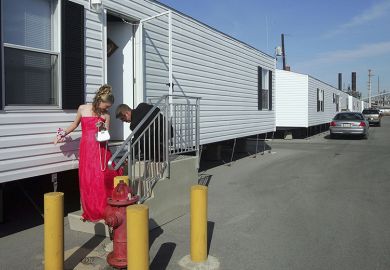Nearly 58,000 more women entered university this academic year than men, according to new figures that suggest the academic achievement gap between the sexes is growing.
Some 285,100 women were accepted on to higher education courses last autumn compared with just 2,300 men, says the admissions body Ucas in analysis of university admissions in 2014-15.
The overall difference between women and men has increased steadily each year from 47,200 in 2008, Ucas says.
Women also achieve higher marks while at university, according to data published by the Higher Education Statistics Agency last week.
Seventy-two per cent of women received at least an upper-second-class degree in 2013-14 compared with just 67 per cent of men.
The latest Ucas information, which shows a record 512,000 people were accepted into higher education last year, also details which subjects are mostly likely to be dominated by men or women.
Male students strongly outnumber female ones on engineering and computer science courses, with 20,300 more men doing engineering and 17,300 more on computer courses.
However, there are more women than men in about two-thirds of subjects, in which they outnumber men by a total of 107,500. These include subjects allied to medicine and education, where four in five students are women.
There were between 12,000 and 13,000 more women than men in creative arts and design, education and social subjects.
The Ucas analysis of 2014-15 admissions also shows the number of students admitted with vocational BTEC qualifications, rather than just A levels, has almost doubled since 2008.
Some 85,000 of 369,000 students admitted to higher education through Ucas’ main application scheme held a BTEC, it says.
It means 23.4 per cent of students entered university in 2014-15 with a BTEC compared with just 13.5 per cent in 2008.
A large majority of universities took a significant number of students who held BTECs, it adds.
Only 26 large providers took fewer than 5 per cent of their intake from BTEC holders in 2014-15 compared with almost double that number (47) in 2008, Ucas says.
Register to continue
Why register?
- Registration is free and only takes a moment
- Once registered, you can read 3 articles a month
- Sign up for our newsletter
Subscribe
Or subscribe for unlimited access to:
- Unlimited access to news, views, insights & reviews
- Digital editions
- Digital access to THE’s university and college rankings analysis
Already registered or a current subscriber? Login




